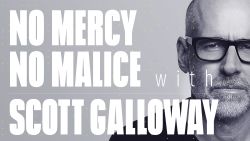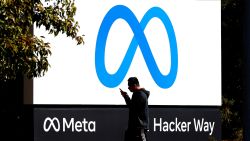In its effort to bring the Libra cryptocurrency to life, perhaps the biggest hurdle for Facebook is alack of trust and opposition from regulators around the world, who are concerned about Libra’s potential implications for privacy and financial stability and Facebook’s role in managing it.
Facebook (FB)’s answer to those criticisms is the Libra Association, a group the company says is an independent, Switzerland-based organization that will govern the digital currency. The organization is a coalition of companies and nonprofits and is designed as a sort of buffer between Facebook (FB) and the project it developed. Facebook (FB) says it willensure neither it nor any other company has an outsized influence over the new currency. The group has 28 “founding member” organizations but plans to grow to 100.
But many of those founding members have close personal, professional and financial ties to Facebook and one another, calling Facebook’s characterization of the Association into question.Those links reach the group’s top leadership. Experts say the connections raise questions about Facebook’s ongoing influence over the project and whose values will be applied to Libra.
“When the white paper said Facebook will be just one of 100 members, you can see with your own eyes that’s not quite true,” said Katharina Pistor, a professor at Columbia Law School and an expert on corporate governance and finance.
This is important because of what Libra aims to be and the responsibilities the Association would have, duties previously held mostly by governments and central banks.
Libra is a cryptocurrency built on open-source blockchain technology that Facebook developed. It’s different from most other cryptocurrencies because it’s designed to be used for transactions, not just investments. With Libra, people could send money to friends or pay for things online like they send an email -— freely (or at least, cheaply) and easily through digital wallet apps, the first of which will be offered by a Facebook subsidiary. Facebook says Libra could improve access to financial services around the world.
Many experts and lawmakers believe Facebook’s billions of users will makeLibra the most widely used cryptocurrency and could make it big enough to rival government-backed currencies like the dollar, potentially threatening the stability of traditional financial systems. The Libra Association would be responsible for overseeing that currency: ensuring it retains value, determining how to work with regulators and how users’ privacy will be protected.
That’s why regulators are particularly worried about Facebook wielding significant influence over the Libra Association. Some don’t trust the social media company to stewardsuch an ambitious project because of its history of privacy violations and having its platform co-opted by foreign trolls most notoriously aiming to interfere in US elections. Many US lawmakers repeated such concerns at two hearings on the project before the House Financial Services and Senate Banking committees in July.
Facebook CEO Mark Zuckerberg “and his executives have proven over and over that they don’t understand governing or accountability,” said Sherrod Brown, a Democratic Senator from Ohio, during one of the July hearings. The fight over Libra comes as Facebook and other big tech companies are also facing bipartisan probes over antitrust concerns.
The Association was meant to help engender trust in the project.
“The reason we designed Libra in such a way that Facebook will only be one among 100 different members of the Libra Association and will have no special privilege means that you will not have to trust Facebook,” Facebook’s David Marcus told lawmakers in July.
Libra is expected to launch next year, although Marcus has promised to wait until the currency receives regulatory approval. Technically the Libra Association does not need American regulators’ approval to launch outside the US because it is based in Switzerland, but it would have a hard time gaining traction without US users.While the Association is still in its early days,the connections between the group’s founding member companies may make it harder to gain lawmakers’ trust.
Libra’s connected web, with David Marcus at the center
The connections largely begin with Marcus himself.
Marcus pioneered Libra at Facebook. He now runs the Facebook subsidiary that will develop Libra-related products and services. He is a member of the board at the Libra Association and is one of three people with signatory power over the organization, according to Swiss legal filings. And Marcus until last year was a board director at one Association member, Coinbase, and was formerly president of another, PayPal.
“So we are discussing a currency controlled by an undemocratically selected coalition of largely massive corporations?” New York Democrat Alexandria Ocasio-Cortez asked during the Congressional Libra hearing.
Facebook says it reached out to a variety of organizations about joining the Association in the months leading up to Libra’s public unveiling. The final group of 28 founding members includes Facebook and payments, technology, venture capital and telecom companies, as well as four nonprofits.
Those companies all shared a desire to “build this network and solve problems,” Marcus told lawmakers at the July hearings, adding that any organization that meets a set of public guidelines will be able to join. The member companies themselves cite a variety of reasons for joining, including an interest in the business applications of blockchain technology and a desire to improve access to financial services. Others said they simply did not want to miss out on the chance to be involved in a potentially revolutionary project.
Facebook has said the Association will be an independent overseer of Libra, and that Facebook will have the same level of influence as any other member after the currency transitions out of the development phase. However, many of the Libra Association founding members have ties to Facebook, Marcus or one another. Here are a few examples:
- Peter Thiel founded one Association member, PayPal, and sold it to another, Ebay. He was the first major investor in Facebook and now sits on its board of directors. Thiel also has investments, through his venture capital firm, in members Spotify, Lyft and Stripe.
- Mark Zuckerberg is Facebook’s founder and one of three board directors at Association member Breakthrough Initiatives. He is personal friends with Daniel Ek, founder and CEO of Association member Spotify — Zuckerberg attended Ek’s wedding in 2016.
- Venture capital firm Andreessen Horowitz is a Libra founding member and an early investor in Facebook. The firm has also invested in Lyft, Stripe, Coinbase and Anchorage. Co-founder Marc Andreessen sits on Facebook’s board and formerly sat on Ebay’s while it owned PayPal. Fellow co-founder Ben Horowitz is a board director at Lyft.
- Association member Union Square Ventures has invested in members Coinbase and Stripe.
- Frederic Court is a board director at Association member Farfetch and the founder Felix Capital, which previously invested in one of Facebook’s David Marcus’ startup companies, Zong.
- Wences Casares is founder and CEO of Association member Xapo. He is also a board director at PayPal and previously sat on the board of one of the Association’s nonprofit members, Kiva. Xapo received funding from Association member, Ribbit Capital.
While these people may not have been directly involved in the Libra project, the connections demonstrate that the Libra Association may be less “diverse and global” than Facebook has claimed. The links also reach the top leadership of the Libra Association.
So far, three leaders have been identified in documents filed with the Swiss government: Marcus, Bertrand Perez and Kurt Hemecker.
Marcus was working on digital payments long before Libra. He founded Zong, a Geneva-based mobile payments provider for online companies. When he sold Zong to Ebay in 2011, the company appointed him head of the mobile division for PayPal (then owned by Ebay), and then president of PayPal the following year. He left his post heading PayPal in 2014 for Facebook.
Perez and Hemecker previously worked as senior executives for Marcus’ Zong, and later for PayPal while Marcus was president. Perez is now the Libra Association’s managing director and chief operating officer, and Hemecker is head of business development, according to their LinkedIn profiles.
The managing director will head the executive team and be responsible for such duties as reviewing the Libra network’s security, monitoring the economic trajectory of Libra and soliciting new Association members, according to the Libra white paper. Marcus is identified as a board member in official documents, as is the Managing Director.
Having Marcus and two longtime colleagues leading the Association at the outset is likely to give Facebook a strong influence over the organization’s culture going forward, said Columbia Law School’s Pistor. Board members are elected for one year but can be reelected indefinitely.
“They moved fast and put their people in place,” she said. “The managing director will set the tone for the organization in the beginning, that gives them a lot of control.”
The Association disputes this idea. Dante Disparte, head of policy at the Association said that while Facebook played a key role in developing the Libra Association and the blockchain network Libra will run on, the company “will have no greater rights or obligations or voting power than any of the other members.”
Why Libra’s stewardship matters
These men will lead an association structured similarly to other nonprofits, according to the Libra white paper and documents filed with the Swiss government.
All member companies will comprise the “Council,” which will meet biannually to make major decisions, such as adding new members or changing the technology underlying Libra. Because that body will be large and meet infrequently, two other groups will have a more regular role in managing Libra. The board of directors, elected by the Council, will oversee Libra’s broader strategic direction. The executive committee, appointed by the board of directors, will have day-to-day, operational control of Libra.
The Libra Association’s charter, not yet ratified, is expected to offer greater detail on the organization’s complete, official slate of leaders and how it will function.
Marcus has stressed the Libra Association will facilitate an important public good, making it faster and cheaper to transfer money. To facilitate this, Facebook subsidiary Calibra will launch a digital wallet for users to save, store and send Libra. Other companies can develop similar services, though experts agree Facebook’s is likely to be the most quickly and widely adopted because of its massive global user base. Facebook says Calibra will operate independently and the two do not plan to share users’ data.
Danny O’Brien, director of strategy at consumer privacy advocacy group Electronic Frontier Foundation, said he worries connections among Libra Association members could make it hard for other digital Libra wallets or crypto projects — ones offering similar benefits for consumers without Facebook’s reputation for handling user data — to compete.
“It may be in all of those companies’ interests to encourage you to use Facebook’s software and services because now they have skin in the game,” O’Brien said. “They want Facebook’s service to win as opposed to other projects that might be better for the consumer.”
Another key role of the Association will be to manage the reserve, a basket of government-issued financial instruments, that will back Libra 1:1 and fluctuate as needed to stabilize Libra’s value.
If Libra grows as quickly as many think it could, lawmakers worry this reserve could significantly impact governments and economies around the world. They’re also concerned it could concentrate power under an already-dominant Facebook or a tightly linked group of big corporations.
“If Facebook’s plans come to fruition, the company and its partners will yield immense economic power that could destabilize currencies and governments,” Maxine Waters, chair of the House Financial Services Committee, said during the House Libra hearing. Marcus said Libra will not aim to compete with sovereign currencies or governments.
Libra Association member companies must make a $10 million investment to join. They’ll earn returns on that investment in the form of interest earned on the reserve, which will first go toward paying operating costs of the association and then be distributed to member companies, Facebook has said. Some experts worry this could discourage the Council from approving new members and further diversifying the organization.
“If you make a lot of money on this, why would you want to share?” Pistor said.
Even with Libra’s altruistic aims, some experts and lawmakers believe public goods like money and payments systems, and the consumers financial data generated by using them, are simply better handled by public institutions. France and Germany’s finance ministers recently spoke out against Libra operating in Europe for this reason. The Federal Reserve, also closely watching Libra, is developing an immediate money transfer system that could bring some similar benefits as Libra to US consumers.
“We can bring Mark Zuckerberg to Congress and publicly shame him, but we can’t vote him out, whereas with the Federal Reserve, we have some public accountability,” said Mehrsa Baradaran, a banking law professor at University of California, Irvine. “Why would we trust Facebook more than our own public institutions, for something this sensitive?”





















